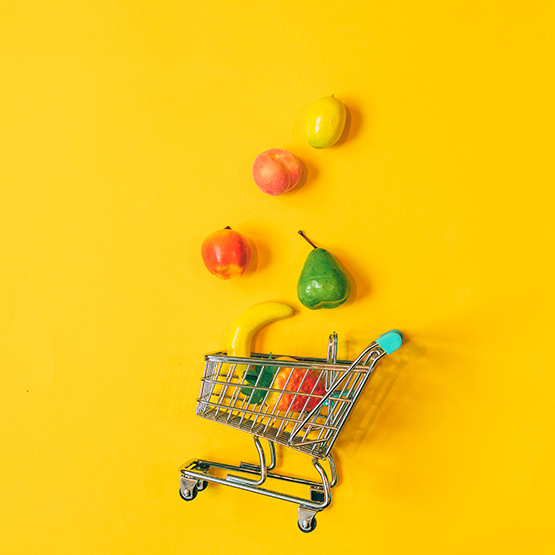We use first and third-party cookies for analytical and statistical purposes and to show you personalised advertisements based on a profile compiled from your browsing habits (e.g. pages visited). For more information, click on our Cookie Policy. You can accept all cookies by pressing 'Accept', you can reject all cookies by pressing 'Reject', or you can customize your choice by pressing 'Manage'.
Teach your children to save
How to teach children to save
- Tips to educate through reason, minimising whims.
- To understand money.
- To apply them today and continue benefiting from them tomorrow.

Smaller but still just people.
Saving is a habit
It takes a bit of effort to get it up and running, but once they start, they will do it without realising it, like so many other things they will have learnedIt is better to do it little by little
It is a little race. Approach it as a game or make a comparison with something they can understand, such as a sport. Spend some time reviewing, to “count the winnings”.And always with a goal
Being motivated will make it easier for them to take up and understand the habit of saving. Start with something very small, but that they really feel excited about.Do we want to teach how to save?
The value of effort
The goals
Consequences
Sharing their games and belongings
Thinking of the future
Money is not chewing gum
Better to give pocket money? Better not?
Another of the recurring questions parents ask ourselves. Another of the many questions about what will be better or worse for our children. We, at Bankinter, believe that having money and learning to count it, manage it, spend it, etc., is part of social education, a consequence of our effort, something essential in our lives, whatever they may be like.
- The amount of pocket money is not important. What matters is constancy, regularity.
- It is important for pocket money to depend on a responsibility, an effort, that it should be a reward for something.
- It can be the prize for something as simple as brushing their teeth every night, picking up the plate from the table, or a set of obligations, of living and sharing with others, whatever you think will work, but always transmitting that their effort has its reward.
Pocket money service

We teach them to save, but how do we teach them to spend?
Spending and purchasing are concepts which are as important as and the corresponding educational burden is as necessary as the concept of saving. Learning to spend will help them to maintain a healthy relationship with money, to reflect on what and how to invest what they have already learned is difficult to earn. Founding this concept in the daily actions of the family economy, such as the weekly shopping, will help them to continue learning.
- Although we may erroneously think that it is a waste of time, take them shopping from time to time: to the supermarket, to the market, to the dry cleaner... We will get the money out of that abstract place you have and you can see it “in action”.
- Ask them to find a common product, one of the ones you use regularly, which allows them to compare and discover the differences in prices. Think of something simple, like cookies or cereal.
- Try to assign them, on a regular basis, the selection of that product that they will certainly find at various prices depending on the offers and brands. They will learn, almost playfully, to differentiate between price, benefits and quality.
Account Mini1: an account for young great savers

An account with no maintenance fee
An account without maintenance fees, without minimum income or direct deposit requirements.With the 5% Plan
Every month that a minimum of €50 is contributed to an investment fund2 from a Youth account or Mini account, a monthly bonus will be obtained: 5% per year (the first year) and 2% per year (the second year) of the investment fund balance accumulated, up to a maximum of €1,000. See conditions3. Investment funds are products which may result in a loss of capital.Read-only passwords
So that they access their account with the Internet, but without being able to transact using it. A safe and real way to understand and become familiar with banking operations.
FAQs with clear answers
Our FAQs section answers the questions you have trouble understanding about financial products: accounts, cards, savings and investment products...
Important Information
-
Show/Hide legal text1 Mini Account. The Mini Account does not bear any interest or maintenance fee. NIR: 0% (AER: 0%).To be eligible for a Mini Account, you must be no older than 17 when you open it or for the duration of the account. Only one Mini Account is permitted per holder (0-17 year olds).
-
Show/Hide legal text2 Investment funds: The key investor information document, prospectus and all other legal documents related to Bankinter's collective investment institutions are available in Spanish at any of our branches, on the Bankinter website (www.bankinter.com) and on the website of the Spanish National Securities Market Commission (CNMV).
-
Show/Hide legal text3 5% Plan: To activate the 5%-2% Plan you must be the holder of a Mini or Youth account and you must make a monthly contribution of at least €50 to one or more investment funds marketed by Bankinter and linked to your account. If you do not make this minimum monthly contribution, you will not receive the bonus. First year: 5%. Second year: 2%.
Monthly bonus paid on the total balance contributed to the fund since the activation of the plan. The maximum bonus-bearing balance is €1,000. Below is a typical example for an initial subscription of €1,000 to an investment fund with a scheduled regular contribution of €50 per month for the next 23 months. Monthly bonus the first year: €4.17 (total annual bonus: 50,04€). Monthly bonus the second year: €1.67 (total annual bonus: 20,04€). This promotion is valid for all Mini and Youth accounts opened before -.
The fund prospectuses, the key investor information document and the other legal documents for Bankinter's collective investment institutions are available in our branches, on the Bankinter website (bankinter.com) and on the website of the Spanish National Securities Market Commission (CNMV) (www.cnmv.es). The time frame for each fund is specified in the Key Investor Information Document.